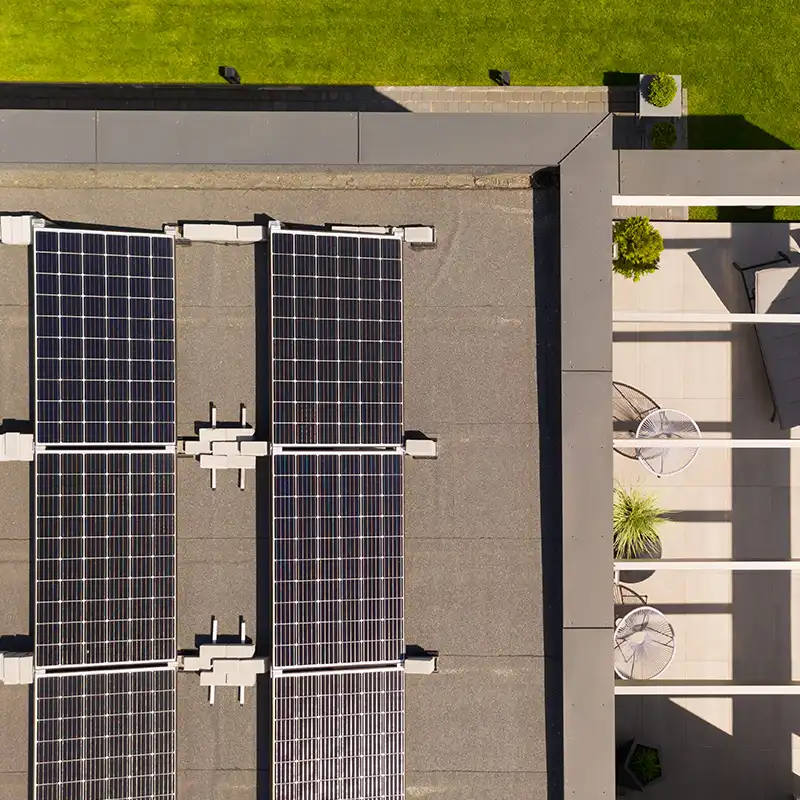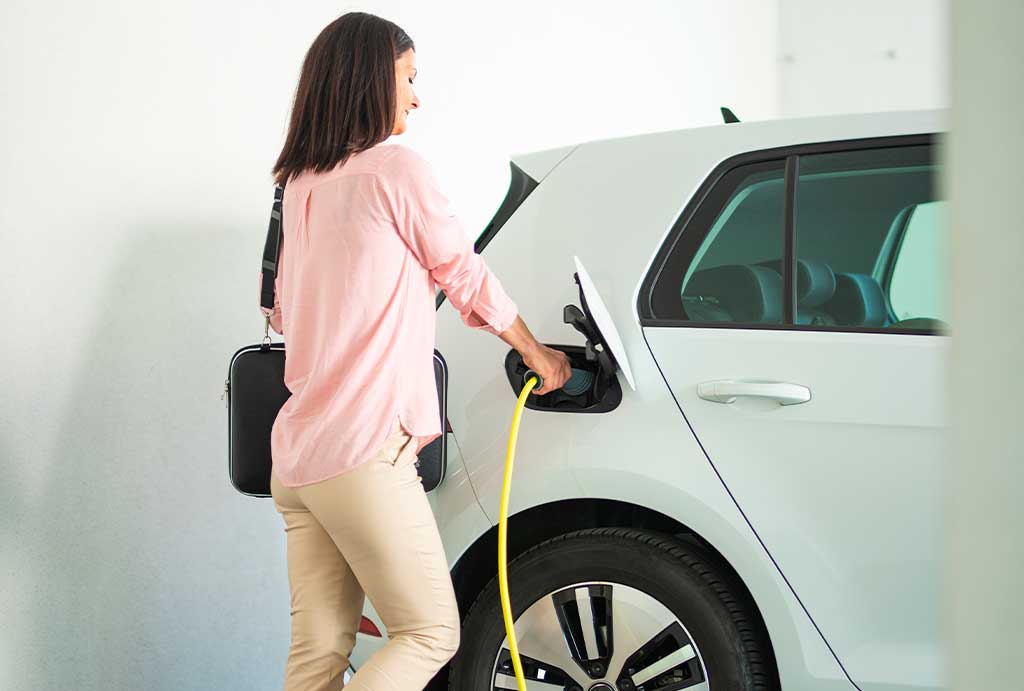Perth solar battery storage
When it comes to solar battery installation, choosing a reputable local company like Solar 2020 is key. We understand the intricacies of Perth’s regulations and sunshine patterns, ensuring your system is optimised for maximum efficiency.
Local expertise also translates to better after-sales support. Solar 2020’s team is familiar with the local grid and can troubleshoot any issues quickly, keeping your clean energy flowing smoothly.
By choosing a local installer, you not only support your community but also gain peace of mind knowing your investment is backed by a team that’s invested in your city’s sustainable future.


Have energy security
With a solar battery system from a local installer like Solar 2020, you can store excess solar energy generated during the day and use it to power your home in the evening, reducing reliance on the grid during peak usage times. This translates to significant savings, especially with Perth’s known higher electricity costs.
But the real benefit comes during power outages. Unlike traditional solar panels, batteries keep your home powered even when the grid goes down, providing essential backup for lights, appliances, and even air conditioning during those hot Perth nights. Invest in peace of mind and energy independence with a solar battery system.
Maximise your solar benefits
Don’t let excess solar energy generated during the day go to waste. A solar battery stores this surplus power, allowing you to utilise it in the evenings – peak usage times with typically higher electricity costs. This translates to significant savings on your power bills.
But the benefits go beyond cost reduction. Solar batteries offer unparalleled energy security. Unlike traditional solar panels, batteries provide backup power during grid outages, keeping your Perth home illuminated and comfortable even on sweltering nights when the grid fails.
Maximise your solar investment and unlock energy independence with a solar battery system from Solar 2020, Perth’s trusted solar experts.


Clean EV Charging
Transform your Perth home into a sustainable powerhouse for both your life and your EV with a solar battery system from Solar 2020. Don’t let the sunshine go to waste. With your excess solar energy you captured throughout the day, you will be able to use it for eco-friendly EV charging at night. This not only reduces reliance on the grid during peak hours (saving you money on Perth’s electricity costs) but also lets you charge your EV with clean, self-generated power. Plus, solar battery backup ensures uninterrupted charging even during power outages, keeping your Perth adventures rolling rain or shine.
FAQs
How do home battery storage work?
In the modern world, energy consumption is a significant concern for both homeowners and environmentalists alike. With the increasing demand for renewable energy sources and the desire for energy independence, home storage batteries have emerged as a viable solution. These innovative devices not only store excess energy generated from renewable sources but also provide backup power during outages. But how exactly do home storage batteries work?
The role of Lithium-Ion technology
At the heart of every home storage battery system lies the lithium-ion battery. Similar to the batteries found in smartphones and electric vehicles, lithium-ion batteries store electrical energy in chemical form. However, home storage batteries are much larger and more robust to accommodate the energy needs of an entire household.
Charging and discharging
The process begins with the conversion of electrical energy generated by solar panels or other renewable sources into direct current (DC). This DC electricity is then fed into the home storage battery system, where it undergoes a charging process. During charging, the lithium-ion cells within the battery pack absorb the electrical energy and store it as chemical energy.
Once the battery is fully charged, the stored energy can be used to power household appliances and devices. When energy demand exceeds supply, such as during the night or on cloudy days, the battery discharges its stored energy to meet the household’s needs. This discharge process involves the conversion of chemical energy back into electrical energy, which is then converted from DC to alternating current (AC) by an inverter for use in the home.
Intelligent energy management systems
One of the key features of home storage batteries is their ability to intelligently manage energy usage. Advanced battery management systems (BMS) monitor the state of charge, voltage, and temperature of the battery cells to optimise performance and longevity. Additionally, smart energy management software allows homeowners to remotely monitor and control their battery system, maximizing energy efficiency and cost savings.
Another important function of home storage batteries is their ability to provide backup power during grid outages. In the event of a blackout, the battery automatically switches to backup mode, ensuring that critical appliances and devices remain powered. This capability not only provides peace of mind for homeowners but also enhances energy resilience and reliability.
Moreover, home storage batteries can also participate in grid services such as demand response and peak shaving.
Supporting the electrical grid
By dynamically adjusting energy usage based on grid conditions, these batteries help stabilise the electrical grid and reduce strain during times of peak demand. In some cases, homeowners may even earn revenue by participating in grid services programs offered by utilities or energy aggregators.
The Environmental Impac
In terms of environmental impact, home storage batteries play a crucial role in promoting sustainability and reducing greenhouse gas emissions. By storing excess energy generated from renewable sources such as solar and wind power, these batteries help maximise the utilisation of clean energy and minimise reliance on fossil fuels. Additionally, the widespread adoption of home storage batteries contributes to the decentralisation of the energy system, empowering individuals to take control of their energy consumption and reduce their carbon footprint.
Conclusion
In conclusion, home storage batteries are revolutionising the way we generate, store, and consume energy at the residential level. By harnessing the power of lithium-ion technology and intelligent energy management systems, these devices offer homeowners a reliable, efficient, and sustainable solution for meeting their energy needs. As we continue to transition towards a cleaner and more resilient energy future, home storage batteries will undoubtedly play a central role in shaping the way we power our homes and communities.
What size home storage battery do I need?
In today’s energy-conscious world, the quest for sustainability and self-sufficiency has led many homeowners to explore the benefits of home storage batteries. These cutting-edge devices not only store excess energy generated by renewable sources like solar panels but also offer peace of mind with backup power during grid outages.
However, determining the optimal size of a home storage battery can seem like navigating a maze. Fear not! In this comprehensive guide, we’ll break down the process step by step, ensuring you find the perfect fit for your home energy needs.
Assess your energy usage patterns
Before diving into the world of home storage batteries, take a moment to evaluate your household’s energy consumption habits. Consider the appliances and devices you use regularly and any seasonal variations in energy demand. This initial assessment will provide valuable insights into your daily energy needs.
Calculate daily energy consumption
Armed with your energy usage insights, it’s time to crunch some numbers. Calculate your average daily energy consumption in kilowatt-hours (kWh). You can do this by reviewing your utility bills or utilising energy monitoring tools readily available online. This figure serves as a crucial benchmark for determining the size of your home storage battery.
Factor in your renewable energy system
If you’ve already embraced renewable energy with solar panels or another system, congratulations! Consider the surplus energy generated that you want to store. A larger solar array may necessitate a correspondingly larger battery to ensure optimal storage and utilisation of the excess energy.
Plan for backup power needs
While the allure of renewable energy is undeniable, ensuring uninterrupted power during grid outages is equally important. Identify critical appliances and devices that you want to keep powered during emergencies, such as refrigerators, lights, and communication devices. Your home storage battery should have sufficient capacity to meet these backup power needs.
Capacity vs. Power
In the realm of home storage batteries, capacity (measured in kWh) and power (measured in kW) reign supreme. Capacity refers to the total amount of energy the battery can store, while power denotes the rate at which the battery can deliver energy. Strike a balance between capacity and power to ensure your battery meets both your short-term and long-term energy demands.
Depth of discharge
Delving deeper into battery technology, consider the depth of discharge (DoD). This metric refers to the percentage of the battery’s capacity that is utilised during each discharge cycle. Opt for a battery with a higher capacity than your immediate needs to minimise DoD, prolonging battery life and maximising efficiency.
Future storage battery expansion
As your energy needs evolve, so too should your home storage battery system. Choose a modular battery solution that allows for seamless expansion and integration with additional renewable energy sources or increased energy consumption. Future-proofing your system ensures flexibility and scalability down the road.
Seek professional guidance
If you find yourself navigating uncharted territory or grappling with complex energy calculations, don’t hesitate to seek professional assistance. Energy advisors or installers can conduct a thorough assessment of your home’s energy profile and recommend the most suitable battery size tailored to your unique circumstances.
Review manufacturer recommendations
Last but not least, heed the wisdom of the battery manufacturers. Each product comes with specific recommendations and specifications based on performance characteristics and intended applications. Take the time to review these guidelines to ensure compatibility and optimal performance of your chosen home storage battery.
In conclusion, selecting the right size home storage battery involves a careful balancing act of energy needs, system capabilities, and future aspirations. By following these steps and seeking professional guidance where needed, you can embark on your journey towards energy independence with confidence and clarity. Let your home storage battery be the cornerstone of your sustainable energy future.
